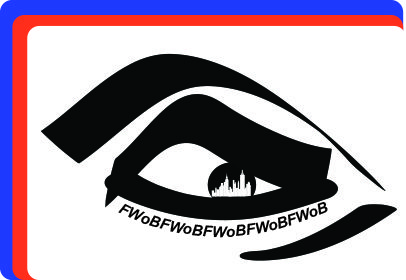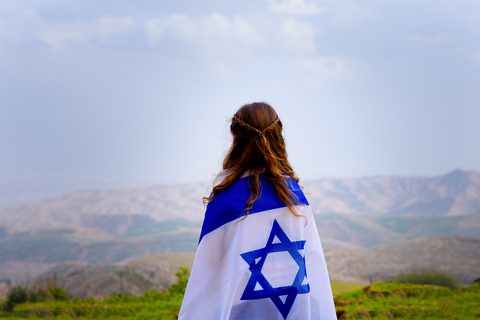The New York Times and other myopic news media, want us to believe that Israel is coming apart at the seams, riven by political and religious dissension. That’s pretty much all they show us.
Israel, like all robust democracies, has its issues, some of them very serious and complex. People of good will can demonstrate and disagree on what should be done. For sure they have some politicians that should be dethroned, but name me a country that doesn’t.
I travelled to Israel last month for the 75th anniversary of its independence, because I was more concerned with a more basic issue and to me, a more important one. Has Israel lost its soul?
One measure of a nation’s soul is how it honors its dead. Know this about the Israeli people, they have a long, collective memory, seared with war and death. So how is that memory manifested?
On Yom Hazikaron, Israel’s national day of remembrance, the entire country comes to an absolute standstill, twice for two minutes. Once at 8pm the evening before and again the next day at 11am.
As soon as the siren is heard, everything stops, everyone stands. Families eating dinner stop and stand. Drivers stop their cars, even on the highways, get out and stand. Office workers stop what they’re doing and stand. Construction workers turn off their heavy machinery and stand. Aside from the sirens and birds chirping, there is absolute silence for two minutes. An extraordinarily powerful two minutes to commemorate and mourn all the soldiers and civilians who have lost their lives defending the State of Israel.
On Yom Hazikaron, every grave of every fallen Israeli soldier is visited by current members of the Israel Defense Forces. Eighteen, nineteen, twenty year old woman and men standing watch at the graves of the women and men of their age and older, who paid the ultimate price. Those young people know in their souls that one of them, heaven forbid, could one day be resting there as well.
The people that were lost defending Israel weren’t racists and they are neither faceless nor forgotten. Honoring their memories and remembering their sacrifices is deeply rooted inside the Israeli soul.
For weeks before the solemn day, workers meticulously manicure the grounds so they look lush and beautiful to honor the fallen.
The families and friends that visit, and let me tell you, thousands and thousands of people do visit, are filled with great grief but with a plentitude of pride.
They wish it could have been different, that Israel would not have had to battle, to fight, to struggle for the past 75 years. Don’t believe the anti-Semites, like Michigan Congresswoman Rashida Tlaib, who tweeted this past week that “Israel was born out of violence and the ethnic cleansing of Palestinians,” that Israel is a bloodthirsty nation. Just ask the mothers, fathers, brothers and sisters who I saw visit the graves of their loved ones this year as they do every year.
Immediately following the mourning of Yom Hazikaron, are the celebrations of Israel Independence Day, Yom Haatzmaut. A balm for the prior 24 hours of sadness, remembering that without the ultimate sacrifice of so many, the State of Israel could not, would not exist.
So many intense emotions in so short a period of time, all part of what makes up the soul of the people of Israel. But there’s one more important thing I discovered about the Israeli soul.
Despite all the pressures and burdens of just trying to stay alive, to survive as a nation, the people of Israel have still found a way to maintain their ability to care for one another.
Let me tell you a small but meaningful story.
One day during my trip, I got up from sitting on a bench on a busy Jerusalem street and started to walk back to where I was staying. I thought my iPhone was in my jacket pocket, but after about ten minutes I reached for it, and it was gone. As we all know, our entire lives are stored in those damn things, so I was freaked out.
I retraced my steps back down to the bench. No phone. But the couple now sitting there, pointed to a small blue note taped to the back of the bench. It was from someone who found my phone and left her contact information so I could get it back. A person who didn’t know if I was an Israeli or a foreigner, secular or religious, a Jew, a Muslim or a Christian, showing that she cared.
With the help of the bench people I was able to reach her. We met up a few blocks away and she handed me my phone. Life crisis averted.
Would this have happened in New York, Los Angeles, Chicago? Would someone have been trusting enough to leave their name and phone number on the back of a public bench for anyone and everyone to see? What do you think?
When my trip concluded, I indeed found what I was seeking, the Israeli soul. It’s a soul that’s been steeled with sadness and infused with success. It’s a soul that is bound up in blood and blessed with benevolence. And despite all their differences and disagreements, it is a soul that has an immense capacity for caring.
It may take a little more time, but those good souls will find the right path for their wonderfully diverse, democratic, dynamic and yes, sometimes dysfunctional, young nation.
Hey, it took even a guy like Moses 40 years of wandering around a desert to get them there in the first place!


3 thoughts on “Soul Searching”
Beautiful article. You found the Israeli soul. So nice you got your phone returned. What a heartwarming experience. Glad you had a nice trip, so meaningful and poignant.
The people who have lost their souls are those who seek to destroy Israel not only by violence, but also by spreading lies and evil propaganda about her. Or perhaps these people haven’t “lost” their souls- they are simply soulless?
I was struck by exactly the same national sensitivity and a similar friendly street experience during my trips to Israel in April and last year. When there, one has a different perspective than the crises reporting by the NYTimes. Israel is a country of people going about their needs and daily activities, under harsh circumstances, both natural and from the outside nations. They struggle, do their best, and achieve remarkable results. Yes, there are political issues, but to the man on the streets and in the fields, it is a side show. You won’t find that in the NYTimes which always seems to focus on what is wrong with Israelis. In their most recent abuse, they called the hardscrabble kibbutzim of the Bet Shean valley “affluent gated communities.” I suppose that is correct if you regard affluent as people satisfied with what they have achieved, and gated if you regard barbed wire fences against Arab attacks that have been going on for 100 + years.